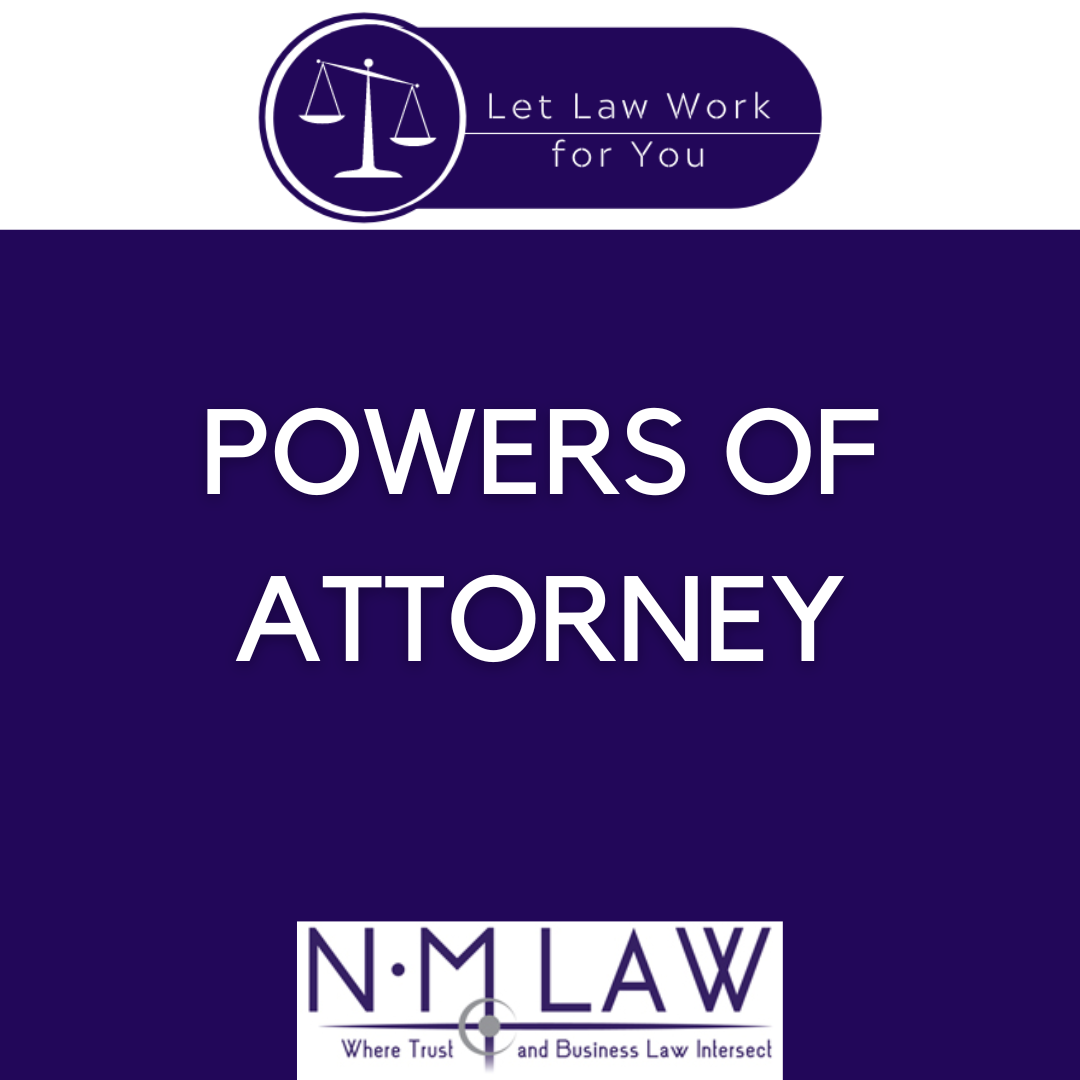
One of the most common devices people use to assist with decision-making and estate planning is powers of attorney. The term “power of attorney” is something most people know but very few understand. In its simplest form, a power of attorney allows an individual, the “principal”, to grant another person or entity, the “agent”, the right to make important legal decisions ranging from banking and investment transactions, to important medical decisions, to selling or buying property, and creating or amending trusts. Often times the powers provided by an agent under a power of attorney do not arise until the principal is deemed to lack the capacity to make decisions for themselves. These are commonly known as “springing” powers of attorney. Other powers of attorney, however, take effect immediately upon execution by the principal. These are commonly referred to as “durable” powers of attorney.
While the powers provided an agent by a principal under a power of attorney are broad, they are not limitless. According to the court in Jay v. Dollarhide, an agent’s power to act is determined solely from the language of the power of attorney; authority is never extended beyond that given by the principal or which is necessary to carry the authority into full effect. Thus, actions taken by agents that overstep the authority provided by their principal in the principal’s power of attorney are void. This can result in very harsh lessons.

A Power of Attorney Case
For example, in Estate of Huston, John Amberg, decedent Amelia Huston’s friend, and neighbor, acted as Ms. Huston’s power of attorney for years after the death of her husband. Ms. Huston was so grateful for Mr. Amberg’s friendship and help that she wanted him to benefit from her estate after she passed. At Ms. Huston’s direction, and using his authority as Ms. Huston’s agent under her power of attorney, Mr. Amberg purchased a $90,000.00 annuity using Ms. Huston’s assets.
In fact, Ms. Huston spoke with the financial institution and agreed that the monthly distributions were to be paid to her while she was living and that on her death the principal should be transferred to Mr. Amberg. After Ms. Huston’s death, however, Mr. Amberg learned that the annuity did not conform to Ms. Huston’s wishes. Specifically, the annuity was created such that after Ms. Huston’s death, Mr. Amberg would receive the monthly payments during the annuity’s term, but upon maturation, the principal would pass to the residuary beneficiaries of Ms. Huston’s estate.
Mr. Amberg filed a petition with the probate court seeking an order declaring that he was the owner of the annuity based on Ms. Huston’s expressed wishes and that the annuity’s principal should be transferred to him. The probate court agreed, and Ms. Huston’s niece Mary Greene appealed. Ms. Greene argued that the gift was unlawful because Mr. Amberg purchased the annuity in his capacity as Ms. Huston’s agent under her power of attorney, and the power of attorney specifically stated that Ms. Huston’s agent “shall not make gifts to yourself.”
The appellate court agreed with Ms. Greene and overruled the probate court’s decision. According to the appellate court, although the evidence showed that Ms. Huston orally agreed to the gift and wished to make the gift, Ms. Huston’s oral consent was insufficient to overcome the language of the power of attorney. The court reasoned that powers of attorney provide an agent written authorization to perform specific acts. Thus, had Ms. Huston wanted to provide Mr. Amberg the authority to make a gift of the annuity to himself as her agent, she needed to modify the power of attorney to give Mr. Amberg that authority. Ms. Huston’s oral ratification of Mr. Amberg’s behavior was not sufficient to comply with the formalities which require that an agent’s powers be in writing. Whatever authority Ms. Huston’s power of attorney provided Mr. Amberg, did not confer on him the authority to alter those powers or ignore them.
Let Mr. Amberg’s loss serve as a lesson. If you want your agent to be able to make specific decisions for you make sure you include that authority in your power of attorney. The courts will not venture outside the four (4) corners of your power attorney after you pass to determine whether you approved of your agent’s decision. If specific authority is not included in your power of authority, any action by your agent contrary to those expressed desires will be voided.
Testimonials
Charities We Support
We dedicate pro bono time, volunteer services, and a percentage of our gross revenue to these organizations. In 2023, we sponsored a refugee family of five to come to the United States and start a new life.
Each year our law firm decides as a group which charities to assist with our time, money, and expertise. Please feel free to click on any of the charities below and make a donation of your own.


















